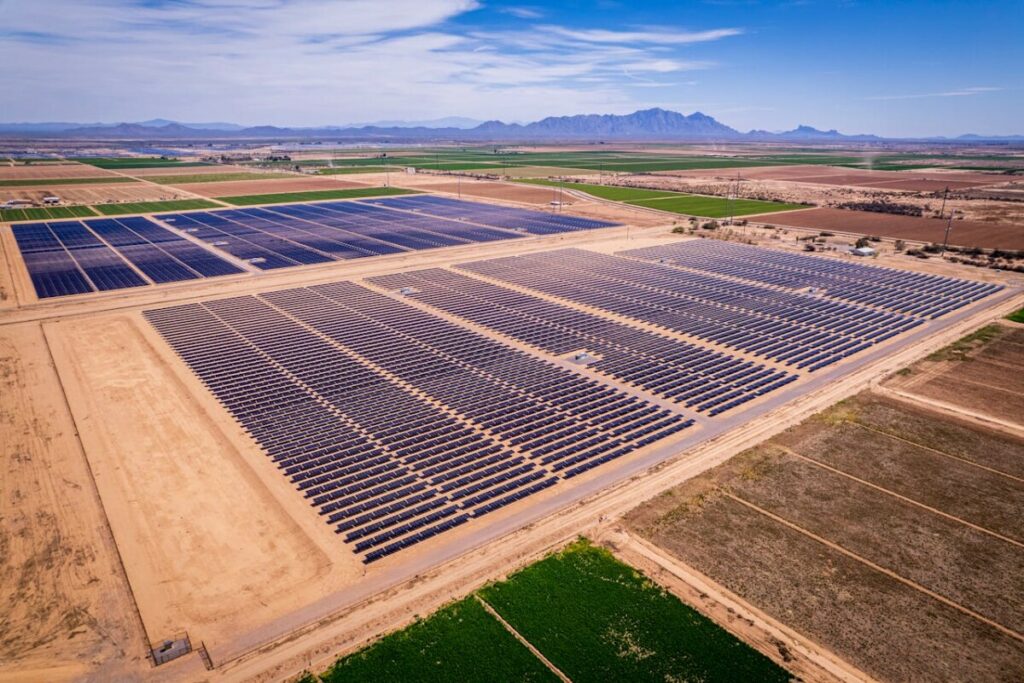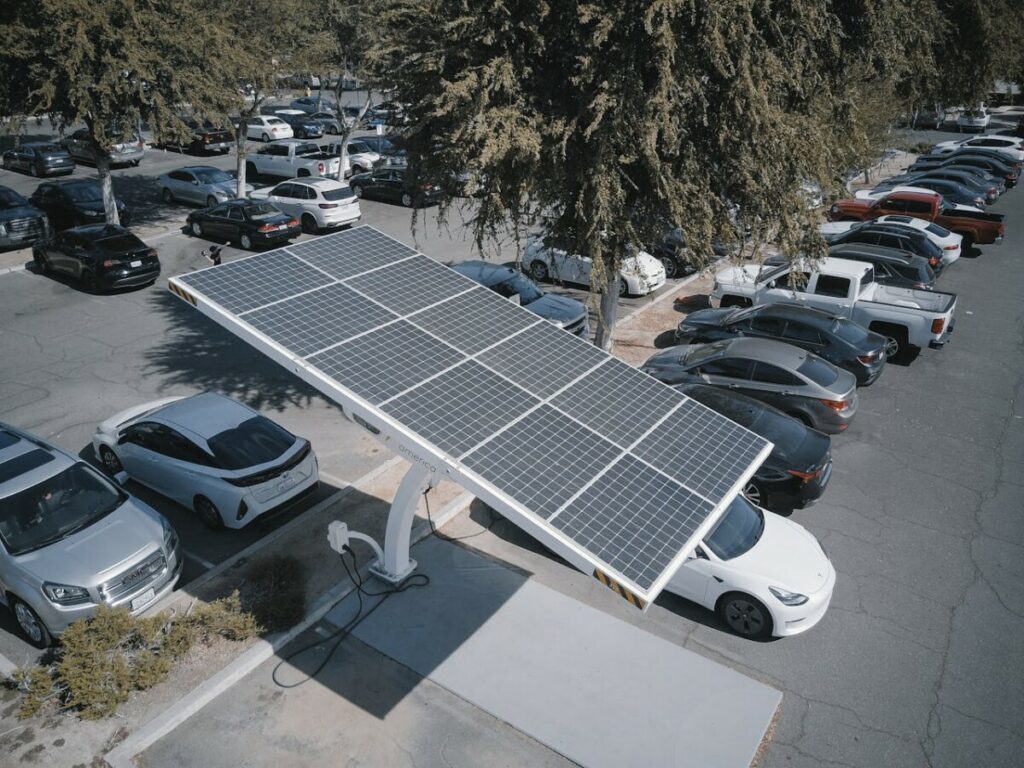How Does Solar Energy Reduce Pollution?
Solar energy has become a significant player in the fight against pollution and climate change. As the world continues to seek cleaner, more sustainable energy sources, understanding the impact of solar energy on reducing pollution is crucial. This article explores how does solar energy reduce pollution, delving into the mechanisms behind this clean energy source and its broader implications for the environment and future generations.
The Environmental Benefits of Solar Energy
Solar energy is a renewable resource that offers numerous environmental benefits. First and foremost, solar panels generate electricity without emitting harmful pollutants. By harnessing sunlight, solar energy systems produce clean energy.
Reducing the need for burning fossil fuels like coal, oil, and natural gas. Consequently, the reduction in greenhouse gas emissions, such as carbon dioxide, methane, and nitrous oxide, significantly lowers the carbon footprint and mitigates climate change.
Reducing Greenhouse Gas Emissions
One of the most critical ways solar energy reduces pollution is by lowering greenhouse gas emissions. Traditional energy sources, particularly fossil fuels, are major contributors to greenhouse gases, which trap heat in the atmosphere and lead to global warming.
The use of solar energy systems helps mitigate this greenhouse effect. According to the U.S. Department of Energy, solar power reduces carbon emissions by displacing the need for electricity production from fossil fuel-fired power plants.
Improving Air Quality
Additionally, the adoption of solar energy has a direct positive impact on air quality. Burning fossil fuels releases a variety of pollutants into the air, including sulfur dioxide, nitrogen oxides, and particulate matter.
These pollutants contribute to smog, acid rain, and respiratory problems in humans. Solar installations, on the other hand, do not produce these harmful emissions. Consequently, widespread use of solar power can lead to cleaner air and better health outcomes for the population.
The Role of Solar Farms in Pollution Reduction

Solar farms play a pivotal role in large-scale pollution reduction. These vast arrays of solar panels generate significant amounts of electricity, reducing reliance on non-renewable energy sources.
Large-scale solar projects can replace coal-fired power plants, which are notorious for their high levels of pollution. By producing clean energy on a massive scale, solar farms help decrease the overall environmental impact of energy production.
Energy Independence and Reduced Carbon Footprint
Moreover, solar energy contributes to energy independence. Many countries rely heavily on imported fossil fuels, which can have both economic and environmental drawbacks.
Solar energy, being a locally sourced renewable energy, reduces the dependency on finite resources. And minimizes the environmental impact associated with their extraction and transportation.
This shift not only supports a more sustainable future but also enhances national security by reducing reliance on foreign energy sources.
Positive Impact on the Natural Environment
Furthermore, the environmental benefits of solar energy extend beyond air quality and greenhouse gas emissions.
Solar power generation requires minimal water use compared to traditional energy sources, which often demand vast amounts of water for cooling and processing. By reducing water usage, solar energy helps preserve this vital resource, especially in regions facing water scarcity.
In recent years, the solar industry has made significant strides in improving the efficiency and affordability of solar panels.
Advances in solar technology have led to more effective solar cells, which convert sunlight into electricity with higher efficiency.
This progress has made solar energy more accessible and viable for widespread adoption. Further enhancing its positive impact on the environment.
How Does Solar Energy Reduce Pollution Conclusion

In conclusion, solar energy stands out as a clean, renewable resource with a profound ability to reduce pollution.
By cutting down on greenhouse gas emissions, improving air quality, and promoting energy independence, solar power is a key player in the global effort to combat climate change and protect the environment.
Embracing solar energy not only ensures a more sustainable future but also safeguards the health and well-being of current and future generations.
Solar Energy and Its Impact on Climate Change
Transitioning to solar energy has a profound impact on mitigating climate change. Traditional energy sources, particularly fossil fuels, are a significant contributor to global warming due to their high greenhouse gas emissions.
By replacing these sources with solar energy, the increase in global temperatures can be curbed. The National Renewable Energy Laboratory (NREL) has conducted numerous studies showing the positive impact of solar energy on reducing the overall carbon footprint.
Reducing Carbon Footprint
First, solar energy systems help in significantly reducing the carbon footprint of energy production. Solar panels generate electricity without releasing carbon dioxide or other greenhouse gases.
According to the Environmental Protection Agency (EPA), every kilowatt-hour of solar energy produced can reduce greenhouse gas emissions by approximately 0.91 pounds of carbon dioxide. Over time, this reduction has a cumulative effect, leading to a substantial decrease in overall emissions.
Mitigating the Effects of Extreme Weather Events
Moreover, solar energy plays a crucial role in mitigating the effects of extreme weather events. Climate change, driven by the greenhouse effect, results in more frequent and severe weather events.
Such as hurricanes, droughts, and heatwaves. By reducing reliance on fossil fuels and decreasing greenhouse gas emissions, solar energy helps to stabilize the climate, potentially reducing the frequency and intensity of these extreme weather events.
The Role of Solar Installations in Enhancing Air Quality

Air pollution is a major environmental and public health issue, and solar energy contributes to its reduction.
The combustion of fossil fuels releases various pollutants, including sulfur dioxide, nitrogen oxides, and particulate matter, which degrade air quality. Solar energy, being a clean energy source, does not produce these pollutants during electricity generation.
Health Benefits from Reduced Air Pollution
Transitioning to solar energy can lead to significant health benefits. Poor air quality is linked to a range of health problems, including asthma, bronchitis, and cardiovascular diseases. By reducing air pollution, solar energy can improve public health outcomes.
For instance, the American Lung Association has highlighted that reducing air pollution through cleaner energy sources like solar power can prevent thousands of premature deaths and reduce hospital admissions related to respiratory and cardiovascular conditions.
Environmental Impact of Solar Energy Systems
Solar energy systems also have a lower environmental impact compared to traditional energy sources.
Fossil fuel extraction and combustion cause significant habitat loss, land degradation, and water pollution.
Solar energy systems, particularly those installed on rooftops or in areas with minimal ecological impact, avoid these negative consequences. Additionally, solar power plants use significantly less water than coal-fired power plants, helping to preserve water resources.
The Economic and Social Benefits of Solar Energy
Beyond environmental benefits, solar energy also offers economic and social advantages. Solar installations create jobs, boost local economies, and provide energy independence.
Job Creation and Economic Growth
The solar industry has been a major driver of job creation. According to the Solar Energy Industries Association (SEIA), the solar industry employed over 230,000 Americans in 2020.
These jobs range from manufacturing and installation to maintenance and research. As the demand for solar energy grows, so does the potential for job creation and economic growth.
Energy Independence and Security
Moreover, solar energy enhances energy independence and security. By reducing reliance on imported fossil fuels, countries can achieve greater control over their energy supply.
This shift not only supports economic stability but also reduces the geopolitical risks associated with fossil fuel dependence.
Social Benefits for Remote Areas
In addition, solar energy provides social benefits, especially for remote areas. Solar installations can supply electricity to regions that lack access to traditional power grids.
This access to clean energy can improve the quality of life, support education and healthcare services, and foster sustainable development in these communities.

How Does Solar Energy Reduce Pollution: Frequently Asked Questions
How does solar energy reduce pollution?
Solar energy reduces pollution by generating electricity without emitting harmful pollutants or greenhouse gases. By replacing fossil fuel-based energy sources, solar power decreases the amount of carbon dioxide, sulfur dioxide, and nitrogen oxides released into the atmosphere.
What are the health benefits of using solar energy?
The health benefits of using solar energy include improved air quality, which reduces the incidence of respiratory and cardiovascular diseases. Cleaner air can lead to fewer hospital admissions and prevent premature deaths related to pollution.
How does solar energy contribute to climate change mitigation?
Solar energy contributes to climate change mitigation by reducing greenhouse gas emissions. The use of solar panels reduces reliance on fossil fuels, which are a major source of carbon dioxide and other greenhouse gases that drive global warming.
Can solar energy help in achieving energy independence?
Yes, solar energy can help achieve energy independence by reducing reliance on imported fossil fuels. By generating electricity locally, solar energy enhances energy security and reduces the economic and geopolitical risks associated with fossil fuel imports.
What is the environmental impact of solar energy systems?
The environmental impact of solar energy systems is significantly lower than that of fossil fuels. Solar energy systems do not produce air or water pollution, require less water for operation, and can be installed with minimal impact on natural habitats.
Advancements in Solar Technology

Advancements in solar technology have significantly enhanced the efficiency and accessibility of solar energy, further contributing to pollution reduction.
Over recent years, innovations in solar panel design, materials, and installation methods have made solar energy systems more effective and affordable for a broader range of applications.
Improved Efficiency of Solar Cells
Firstly, the efficiency of solar cells has improved dramatically. Modern solar panels can convert a higher percentage of sunlight into electricity, making them more effective at generating power.
Research conducted by the National Renewable Energy Laboratory (NREL) has led to the development of high-efficiency solar cells that maximize energy output.
This increase in efficiency means that less space is required to generate the same amount of electricity, making solar installations more feasible in urban and suburban environments.
Cost-Effective Solar Installations
Secondly, the cost of solar installations has decreased, making solar energy more accessible to homeowners and businesses. Government incentives, such as tax credits and subsidies, have also played a crucial role in reducing the financial barriers to adopting solar energy.
As the solar industry continues to grow, economies of scale and advancements in manufacturing processes are expected to further drive down costs, making solar energy a more attractive option for a wider audience.
Innovations in Solar Power Plants
Moreover, innovations in solar power plants have enhanced their capacity to contribute to pollution reduction. Large-scale solar farms, equipped with advanced tracking systems, can follow the sun’s movement, optimizing energy capture throughout the day.
These solar farms generate substantial amounts of clean energy, significantly offsetting the pollution associated with traditional energy sources. Additionally, solar power plants can be combined with energy storage systems, ensuring a stable and reliable supply of electricity even when the sun is not shining.
Solar Energy and Its Positive Impact on Water Resources

Solar energy also has a positive impact on water resources. Traditional energy production, particularly from coal and nuclear power plants, requires significant amounts of water for cooling purposes. This high water usage can strain local water supplies, especially in arid regions.
Reduced Water Usage
Solar energy systems, in contrast, require minimal water for operation. Photovoltaic solar panels, which are the most common type of solar energy system, do not need water to generate electricity.
This reduction in water usage helps conserve local water resources and reduces the environmental impact associated with energy production.
Protection of Water Quality
Furthermore, solar energy protects water quality by preventing pollution. Fossil fuel extraction and combustion can lead to water contamination through runoff and spills, impacting both surface water and groundwater.
Solar energy, being a clean energy source, does not produce pollutants that can leach into water supplies. As a result, the widespread adoption of solar energy can lead to healthier ecosystems and safer drinking water for communities.
The Future of Solar Energy
The future of solar energy is bright, with ongoing research and development paving the way for even more efficient and versatile solar energy systems.
As technology continues to advance, solar energy is expected to play an increasingly important role in global energy production, further reducing pollution and combating climate change.
Emerging Technologies
Emerging technologies, such as solar windows and flexible solar panels, are expanding the potential applications of solar energy. Solar windows, which integrate photovoltaic technology into building materials, can turn entire buildings into power generators.
Flexible solar panels, on the other hand, can be applied to a variety of surfaces, including vehicles and portable devices, increasing the versatility and convenience of solar power.
Integration with Other Renewable Energy Sources
Additionally, the integration of solar energy with other renewable energy sources, such as wind and hydropower, can create more resilient and sustainable energy systems.
Hybrid energy systems can provide a more consistent and reliable supply of electricity, reducing the need for backup power from fossil fuel plants.
Community Solar Projects
Community solar projects are also gaining popularity, allowing multiple households or businesses to share the benefits of a single solar installation.
These projects make solar energy more accessible to those who may not have the resources or space to install their own solar panels, further expanding the reach and impact of solar energy.
How Does Solar Energy Reduce Pollution Conclusion
In conclusion, solar energy stands as a powerful tool in the fight against pollution and climate change. By reducing greenhouse gas emissions, improving air quality, and conserving water resources, solar energy systems offer a sustainable and environmentally friendly alternative to traditional energy sources.
Continued advancements in solar technology and the growing adoption of solar power will play a crucial role in creating a cleaner, healthier future for all.

Solar Energy and Sustainable Development
Solar energy plays a vital role in promoting sustainable development. As the world shifts towards more sustainable energy sources, solar power offers a pathway to meet the growing energy demands while minimizing environmental impact.
By harnessing the sun’s power, solar energy can drive economic growth, enhance energy security, and promote environmental stewardship.
Supporting Economic Development
Firstly, solar energy supports economic development by creating jobs and stimulating local economies. The solar industry has become one of the fastest-growing sectors in the renewable energy market, providing employment opportunities in manufacturing, installation, maintenance, and research.
According to the Solar Energy Industries Association (SEIA), the growth of the solar industry has outpaced many traditional industries, contributing to economic diversification and resilience.
Enhancing Energy Security
Secondly, solar energy enhances energy security by reducing dependence on finite and imported fossil fuels. Countries that invest in solar energy infrastructure can produce electricity locally, reducing their vulnerability to global energy market fluctuations and geopolitical tensions.
This shift towards renewable sources of energy also helps to stabilize energy prices and ensures a more reliable energy supply.
Promoting Environmental Stewardship
Moreover, solar energy promotes environmental stewardship by minimizing the negative impact of energy production on the natural environment. Traditional energy sources, such as coal and oil, are associated with habitat destruction, air and water pollution, and greenhouse gas emissions.
Solar energy systems, on the other hand, produce clean electricity without these detrimental effects, helping to preserve biodiversity and protect ecosystems.
How Does Solar Energy Reduce Pollution: Frequently Asked Questions

How does solar energy reduce pollution?
Solar energy reduces pollution by generating electricity without emitting harmful pollutants or greenhouse gases. By replacing fossil fuel-based energy sources, solar power decreases the amount of carbon dioxide, sulfur dioxide, and nitrogen oxides released into the atmosphere.
What are the health benefits of using solar energy?
The health benefits of using solar energy include improved air quality, which reduces the incidence of respiratory and cardiovascular diseases. Cleaner air can lead to fewer hospital admissions and prevent premature deaths related to pollution.
How does solar energy contribute to climate change mitigation?
Solar energy contributes to climate change mitigation by reducing greenhouse gas emissions. The use of solar panels reduces reliance on fossil fuels, which are a major source of carbon dioxide and other greenhouse gases that drive global warming.
Can solar energy help in achieving energy independence?
Yes, solar energy can help achieve energy independence by reducing reliance on imported fossil fuels. By generating electricity locally, solar energy enhances energy security and reduces the economic and geopolitical risks associated with fossil fuel imports.
What is the environmental impact of solar energy systems?
The environmental impact of solar energy systems is significantly lower than that of fossil fuels. Solar energy systems do not produce air or water pollution, require less water for operation, and can be installed with minimal impact on natural habitats.
How do solar energy systems affect water usage?
Solar energy systems, particularly photovoltaic panels, require minimal water for operation, unlike traditional energy sources which need large amounts of water for cooling. This helps conserve water resources and reduces the environmental impact associated with energy production.
How Does Solar Energy Reduce Pollution Conclusion

In conclusion, solar energy is a clean, renewable resource that significantly reduces pollution and offers numerous environmental, economic, and social benefits.
By decreasing greenhouse gas emissions, improving air quality, conserving water resources, and supporting sustainable development, solar energy provides a viable solution to the pressing challenges of climate change and environmental degradation.
As advancements in solar technology continue and the adoption of solar power grows, the positive impact of solar energy on the environment and human health will only become more pronounced.
Embracing solar energy is crucial for creating a more sustainable future. Governments, businesses, and individuals must work together to promote the use of solar energy systems. And support policies that encourage renewable energy projects.
By making the transition to solar energy, we can reduce our carbon footprint, protect our natural environment, and ensure a healthier, more prosperous future for generations to come.
Thank you for taking the time to read “How Does Solar Energy Reduce Pollution.” If you found this information valuable and insightful, please consider sharing it with your friends on social media. By spreading the word, we can raise awareness about the benefits of solar energy and work together towards a cleaner, greener future.
Thank you for your support!
Recent Posts
The Future of Wind Energy The future of wind energy is set to play a critical role in addressing global energy needs while combating climate change. As renewable energy sources like wind and...
Misconceptions about Wind Energy This article Misconceptions about wind energy will debunk common myths surrounding wind energy and clarify the facts based on scientific research, studies, and...


